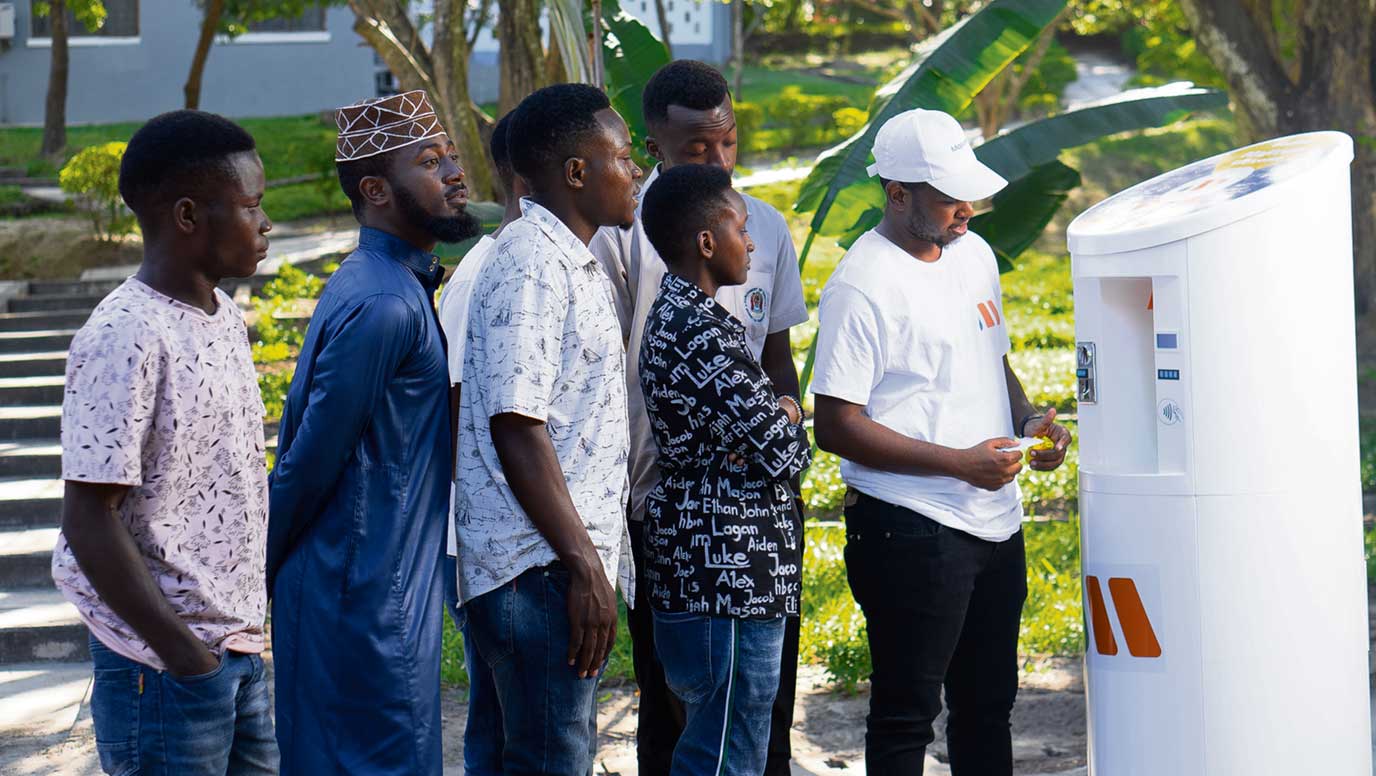Majicom scales solar-powered water kiosks across East Africa

The investment is set to accelerate Majicom’s mission of providing affordable clean water to communities across East Africa through its innovative solar-powered water kiosks and partnership model, expanding its reach and impact in several crucial ways. Majicom says it will use the new investment to extend its product pilots beyond Tanzania and into neighbouring Kenya.
Backed by Arm, among others, Majicom was created by a team of scientists and engineers from the University of Cambridge and has grown apace.
The company’s solar-powered water kiosks, which purify, store, and dispense clean water, have initially been deployed at university sites in Dar es Salaam, Tanzania, with a mission to reduce the cost of clean water for students by over 50 per cent whilst slashing the plastic waste burden of ‘drink and drop’ practices.
The two largest universities in Kenya – the University of Nairobi and Kenyatta University – have now committed to testing and implementing Majicom’s water kiosks on their campuses. These universities house over 100,000 students, providing Majicom with a clear pathway to dramatically scale its impact.
Professor Gitau, representing The University of Nairobi, expressed enthusiasm about the partnership, noting: “We are excited to partner with Majicom in this endeavour. Access to affordable, sustainable drinking water is essential for our students, and Majicom’s innovative kiosks provide an excellent solution to meet this need while addressing plastic waste reduction.”
The unspecified funding has also enabled Majicom to forge a strategic partnership with INNO-NEAT, a Kenyan technology company tackling the problem of e-waste.
Across Sub-Saharan Africa up to 90 per cent of battery waste goes unrecycled – ending up in landfill and fragile ecosystems. INNO-NEAT has developed a process for re-purposing this lithium-ion battery waste into recycled solar power management systems. The two companies are now working to integrate this re-purposed solar system into the Majicom kiosk.
Mike Coto, CEO of Majicom, told Business Weekly: “Our collaboration with INNO-NEAT enables us to build even more sustainable kiosks while supporting the local economy.
“Together, we’re not only providing clean water but also championing a greener, closed-loop system that reuses existing resources.”
Majicom is also leveraging support from the Royal Academy of Engineering’s Higher Education Partnerships (HEP) programme to launch new educational initiatives in Tanzania. This project involves collaboration with four universities and technical institutes across Tanzania where Majicom’s kiosk technology will be used as a practical teaching tool in engineering, manufacturing, and product design courses.
The ‘Impact Engineer’ training programme, developed by Majicom and its project partners in Tanzania, led by Ardhi University, is designed to equip young engineers with hands-on skills that complement the theory-based curriculum prevalent in Tanzanian universities.
Graduates of the programme can also intern with Majicom in 2025, providing them with invaluable paid work experience in a technology-focused environment.
Lillian Madeje of Ekihya, a project partner, said: “The Impact Engineer programme bridges the gap between classroom theory and real-world application, equipping our students with practical skills that are invaluable in today’s job market. We’re thrilled to work with Majicom to bring this vision to life.”


